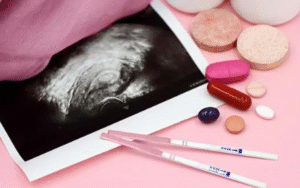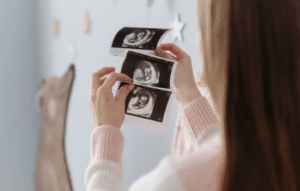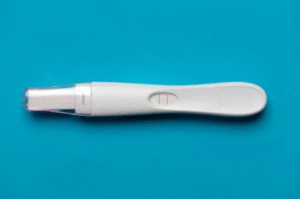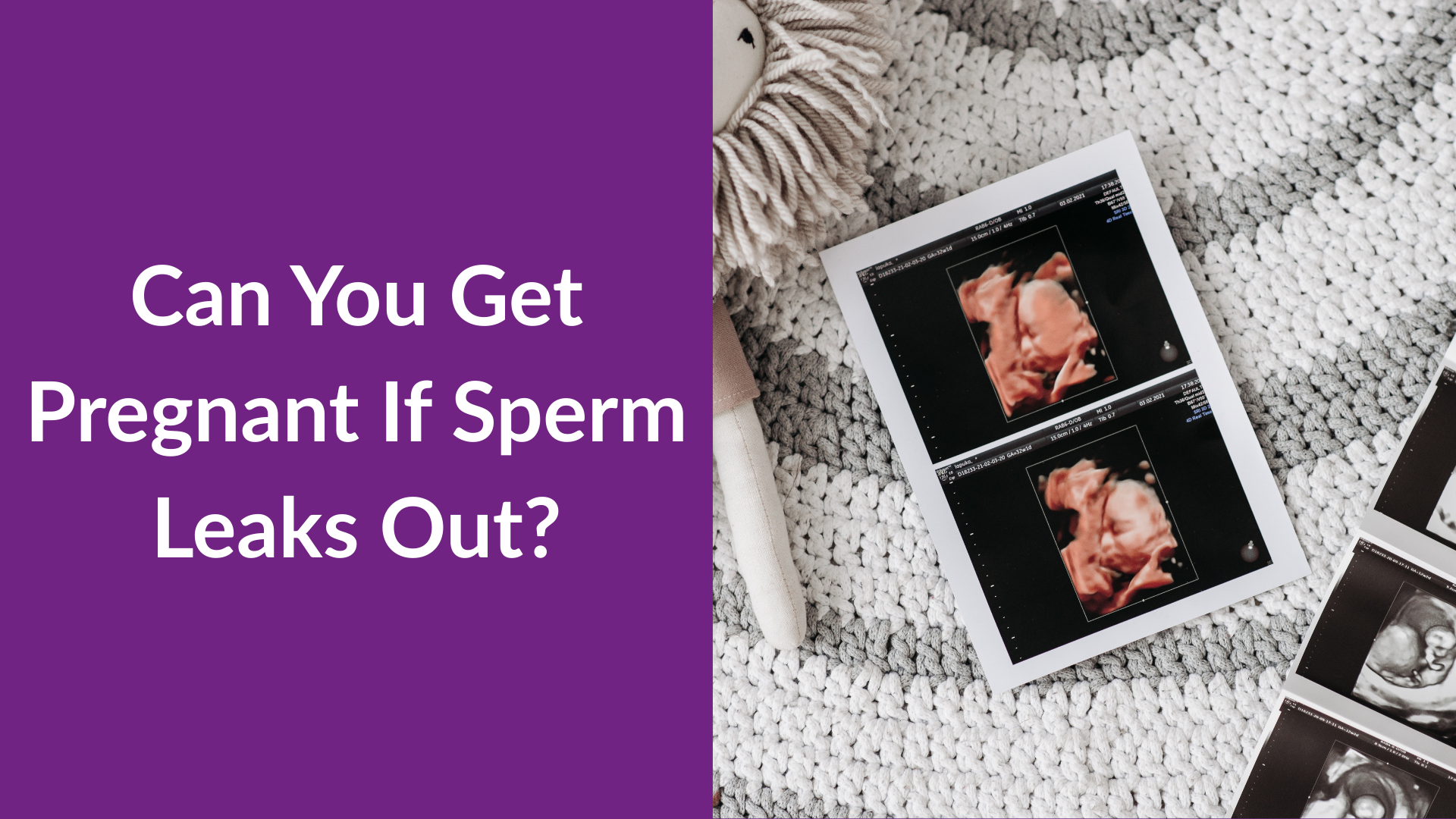One of the most common concerns among couples trying to conceive (or avoid pregnancy) is whether pregnancy can still happen if sperm leaks out after intercourse. Many women notice semen flowing out of their bodies post-intercourse, leading to questions about whether it affects conception chances.
In this article, we will explore how pregnancy occurs, what happens when sperm leaks out, and whether it impacts fertility. We’ll also debunk common myths, provide scientific explanations, and offer practical tips to maximize conception chances.
How Does Pregnancy Happen?


Pregnancy occurs when a sperm successfully fertilizes an egg, leading to embryo development and implantation in the uterus. The process involves several key steps:
- Ovulation: The ovary releases a mature egg (typically once a month).
- Intercourse & Ejaculation: Sperm is deposited into the vagina during sex.
- Sperm Journey: Millions of sperm swim through the cervix, uterus, and fallopian tubes, seeking the egg.
- Fertilization: If sperm meets the egg, fertilization occurs.
- Implantation: The fertilized egg (now an embryo) attaches to the uterine lining, initiating pregnancy.
It’s important to note that only one sperm is needed to fertilize an egg, even though millions are released during ejaculation.
What Happens When Sperm Leaks Out?
Many women notice semen leaking out of the vagina after intercourse, which can raise concerns about its effect on conception. Here’s what you need to know:
- It’s Completely Normal: The fluid loss after sex is natural and doesn’t mean all sperm are lost.
- Sperm Swim Quickly: The most motile sperm enter the cervix within minutes, and only weak or excess seminal fluid leaks out.
- Gravity & Positioning Play a Role: Certain sexual positions may influence how much semen stays inside, but they don’t completely determine pregnancy chances.
- Only a Fraction is Needed: Out of millions of sperm in an ejaculation, only a few hundred need to reach the egg for fertilization to occur.
So, while sperm leakage is common, it doesn’t mean you can’t get pregnant.
Can You Get Pregnant If Sperm Leaks Out?
Short Answer: Yes, You Can!
Sperm leakage does not prevent pregnancy. Even if some semen flows out, a sufficient number of sperm may still reach the egg. Here’s why:
- Sperm Moves Fast: Some sperm reach the fallopian tubes within minutes of ejaculation.
- Sperm Survives for Days: Inside the female reproductive tract, sperm can live up to 5 days, waiting for an egg.
- Not All Fluid Contains Sperm: The fluid that leaks out is often excess seminal fluid, not necessarily the sperm that entered the cervix.
Thus, leakage doesn’t eliminate the possibility of pregnancy, as fertilization depends on the sperm that successfully enter the uterus and fallopian tubes.
Factors That Influence Pregnancy Despite Sperm Leakage


Even if sperm leaks out, pregnancy can still occur based on these factors:
Timing of Intercourse
- If sex occurs during ovulation (mid-cycle, around days 12–16 in a 28-day cycle), pregnancy is more likely.
- Sperm can wait for the egg, so sex before ovulation may also result in pregnancy.
Sperm Health & Motility
- Strong, motile sperm reach the egg faster.
- Lifestyle factors like diet, hydration, and avoiding smoking/alcohol improve sperm quality.
Cervical Mucus
- Fertile cervical mucus during ovulation helps sperm survive and swim efficiently.
- Dry or hostile mucus may reduce sperm movement.
Sexual Position & Post-Sex Movements
- Some believe lying down after sex may help sperm stay inside longer, but this is not medically proven.
- Standing immediately after sex may lead to more leakage but doesn’t eliminate all sperm.
Volume of Ejaculation
- Higher sperm count increases chances of some sperm surviving, even if leakage occurs.
Common Myths About Sperm Leakage & Pregnancy
❌ Myth 1: If Sperm Comes Out, Pregnancy is Impossible
✅ Truth: Only a small number of sperm are needed to fertilize an egg, even if some leak out.
❌ Myth 2: Lying Down After Sex Increases Pregnancy Chances
✅ Truth: While gravity may help, sperm swim on their own and reach the fallopian tubes quickly, regardless of position.
❌ Myth 3: Doubling Intercourse Frequency Increases Chances
✅ Truth: Having sex around ovulation is more important than frequency. Overdoing it may reduce sperm quality.
❌ Myth 4: Urinating After Sex Flushes Out Sperm
✅ Truth: Urine exits through the urethra, not the vagina, so it doesn’t affect sperm inside the reproductive tract.
Tips to Maximize Pregnancy Chances Despite Sperm Leakage


If you’re trying to conceive, here are some ways to improve your chances:
✔ Track Ovulation: Use ovulation kits, basal body temperature tracking, or cervical mucus observation.
✔ Have Regular, Timed Intercourse: Every 2–3 days during the fertile window ensures sperm presence when ovulation happens.
✔ Maintain a Healthy Lifestyle: Eat fertility-boosting foods, exercise, and manage stress.
✔ Stay Hydrated: Good hydration helps sperm motility and cervical mucus quality.
✔ Avoid Smoking & Alcohol: Both can harm sperm quality and reduce conception chances.
Conclusion
Sperm leakage after intercourse is completely normal and does not prevent pregnancy. Even if semen comes out, millions of sperm are released during ejaculation, and only a few are needed for fertilization. Factors like timing, sperm health, and cervical mucus play a bigger role in conception than semen leakage.
If you’re actively trying to conceive, focus on ovulation tracking, a healthy lifestyle, and regular intercourse rather than worrying about leakage. However, if pregnancy doesn’t occur after 12 months (or 6 months for women over 35), consider consulting a fertility specialist.
FAQ – Can You Get Pregnant If Sperm Leaks Out?


1. How do I know if my sperm went inside?
There’s no immediate way to confirm if sperm entered the cervix. However, if ejaculation occurred during intercourse, sperm likely made its way inside. Fertility tracking methods and signs of ovulation can help improve your chances.
2. What are the chances of getting pregnant if the sperm leaks out?
Sperm leakage is common and doesn’t mean pregnancy won’t happen. Once sperm enters the cervix, leakage won’t affect conception since millions of sperm are released during ejaculation.
3. What are the first signs when sperm meets with an egg?
Early signs can include mild cramping, spotting (implantation bleeding), or subtle changes in body temperature. However, these symptoms are not always noticeable.
4. Can I still get pregnant if I pee right after?
Yes, urinating after intercourse doesn’t prevent pregnancy. Sperm cells swim quickly into the cervix and uterus, so peeing won’t wash them out.
5. How much sperm is needed to get pregnant?
It only takes one healthy sperm to fertilize an egg. However, ejaculation typically releases millions of sperm to increase the chances of successful fertilization.





2 Comments
CarlosNoume
В приложении Telegram появилась дополнительная функция — внутренние звёзды.
Они служат для поддержки авторов.
Каждый подписчик может дарить звёзды каналам.
как купить звезды в телеграм с айфона
Звёзды обмениваются в реальные деньги.
Это простой способ поблагодарить авторов.
Попробуйте новшество уже немедленно.
EdgarGob
В приложении Telegram появилась функция звезд.
Теперь люди могут помечать важные сообщения.
Это дает возможность быстро находить нужную заметку.
купить 100 звезд
Функция удобна для работы.
Благодаря этому легко зафиксировать ключевые заметки.
Такой инструмент бережёт время и делает общение быстрее.
Comments are closed.